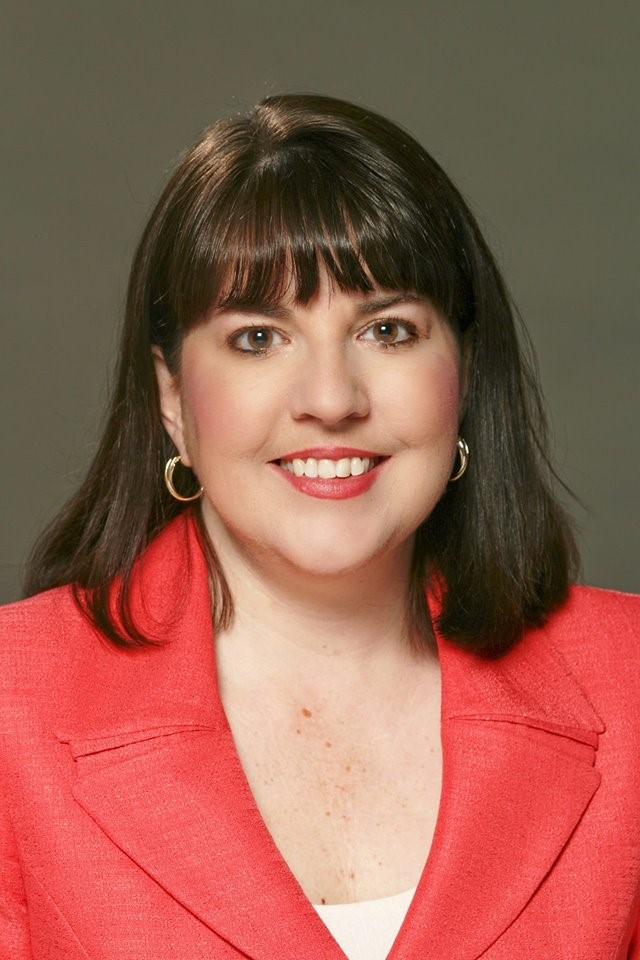Baylor Journalism Professor Selected as Arthur W. Page Fellow

Marlene Neill, courtesy of Baylor Photography
Media Contact: Terry_Goodrich, 254-710-3321
Follow Baylor Media Communications on Twitter: @BaylorUMedia
by Liesbeth Powers, student newswriter
WACO, Texas (July 9, 2018) – Marlene Neill, Ph.D., assistant professor of journalism, public relations and new media in Baylor University’s College of Arts & Sciences, has been designated as a research fellow at the Arthur W. Page Center for Integrity in Public Communication, a research center at the Penn State University College of Communications.
The Page Center has asked Neill to focus on developing a response to a new report from the Commission on Public Relations Education that recommends public relations education programs offer a stand-alone ethics course, as well as integrate ethics throughout curriculum. The study found that public relations professionals ranked ethics third behind writing and communication as a necessary competency to work in public relations. In addition, public relations professionals in the study indicated that new professionals are not meeting their expectations in this area.
“This is a great project because it combines my interests, the first being ethics, which is an area that I enjoy studying, and the second is a focus on public relations education,” Neill said. “I will be teaching the media ethics class in the spring for the first time, and one of the things I like about doing these studies is that it helps me gather insights from industry and then bring those insights back to the classroom.”
Since receiving her invitation in June, Neill has begun preparations for research this fall with different groups across the nation, including the Public Relations Society of America. She will use the Delphi research method, where she will gather feedback from a variety of experts including senior- and middle-management executives as well as young professionals, and will then follow up with in-depth interviews, which last anywhere from 30 minutes to an hour. In addition, she will be serving on a subcommittee of the Commission on Public Relations Education, which is charged with making recommendations for public relations ethics curriculum.
“On a typical study, I’ll spend about nine months going through the process of collecting the data, analyzing it, writing the papers, presenting to conferences and submitting to journals,” Neill said. “The second year will be spent preparing reports and writing recommendations based on those findings. While it sounds like a long time, when you think about it from that perspective, there’s a lot involved in doing an in-depth study like this.”
In-depth interviews work well for this type of study, Neill said, because they provide specific examples of dilemmas and how people choose to handle them.
“With qualitative research, you really get an understanding of the decision-making that people go through when faced with an issue and the step-by-step process they take to reach those decisions,” Neill said. “You get that inside scoop into the motivations and reasons for their actions.”
Neill had previously received four grants from the Page Center, which resulted in a book, “Public Relations Ethics: Senior PR Pros Tell Us How to Speak Up and Keep Your Job,” published in 2018, as well as four journal articles, four academic conference papers and two top paper awards. In one of her most recent studies, Neill found that millennials often do not expect to face ethical dilemmas and do not feel prepared to address them.
“There is a need to improve and enhance our ethics training at our colleges and universities, and by tapping in to what is actually happening in the industry, it makes it more relevant and helps better prepare students for some of the issues they will be facing today,” Neill said.
As part of her subcommittee, Neill will gather sample syllabi and other teaching resources from universities across the nation and then share them with different public relations educators to help them prepare to cover ethics in ethics courses, as well as other public relations courses.
The Arthur W. Page Center is one of the primary sources for grant funding for research in humanities, which often has less funding opportunities in comparison to other fields. Neill’s research grant and her work on this project fits into Baylor’s Academic Strategic Plan, “Illuminate.”
“I do think the work I’m doing fits Baylor’s mission of preparing students to be ethical leaders in whatever profession that they choose,” Neill said. “I am looking forward to continuing to work on ethics with professors across the University as part of this incredible initiative that Dr. Livingstone has announced.”
ABOUT BAYLOR UNIVERSITY
Baylor University is a private Christian University and a nationally ranked research institution. The University provides a vibrant campus community for more than 17,000 students by blending interdisciplinary research with an international reputation for educational excellence and a faculty commitment to teaching and scholarship. Chartered in 1845 by the Republic of Texas through the efforts of Baptist pioneers, Baylor is the oldest continually operating University in Texas. Located in Waco, Baylor welcomes students from all 50 states and more than 80 countries to study a broad range of degrees among its 12 nationally recognized academic divisions.